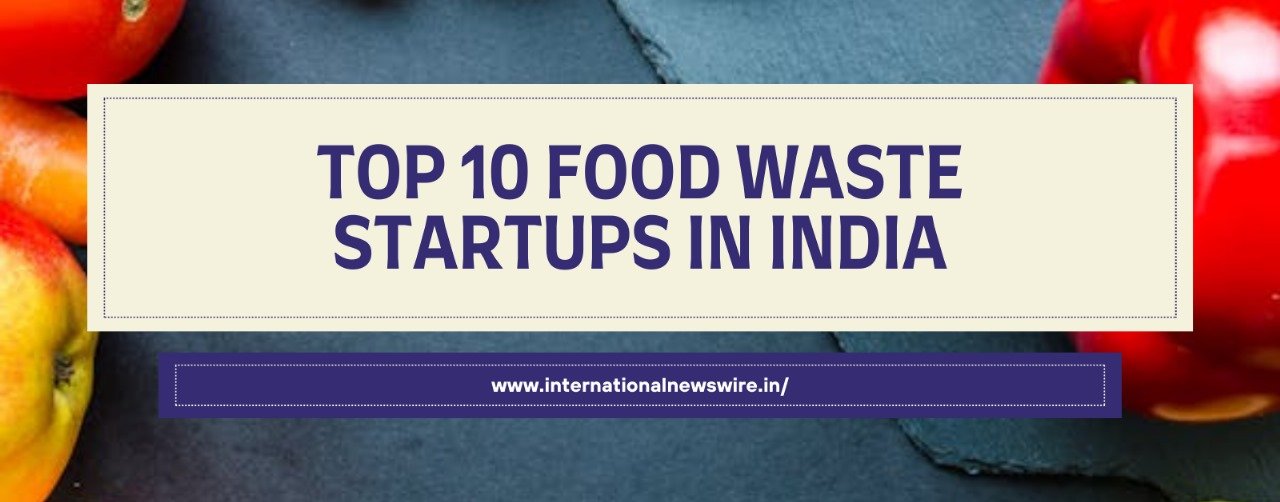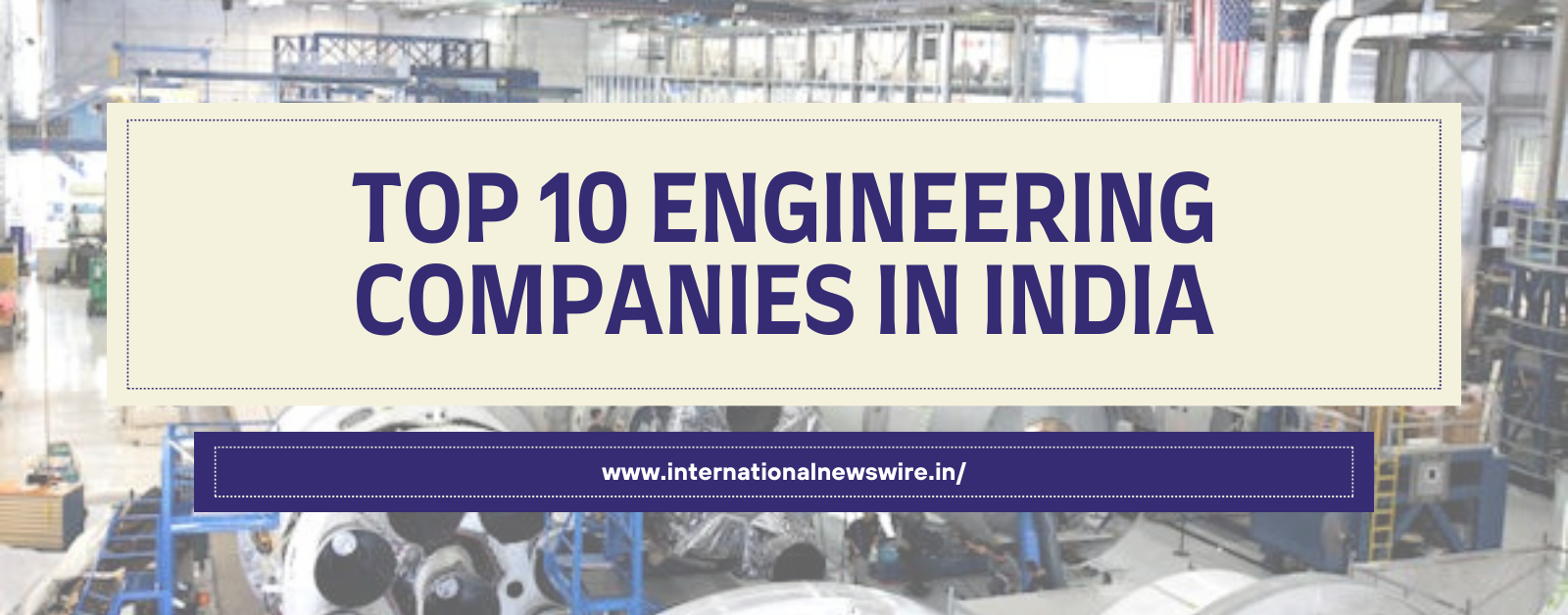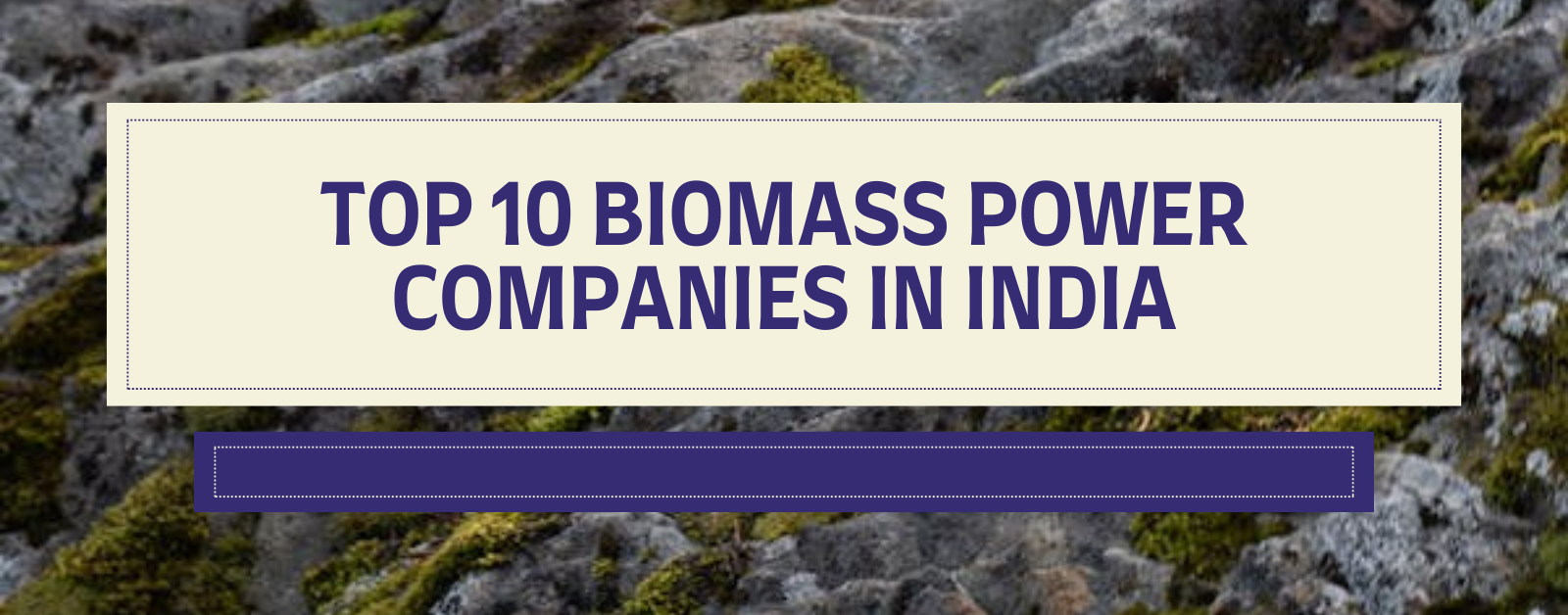In recent years, India has witnessed a burgeoning startup ecosystem dedicated to tackling one of the world’s pressing challenges: food waste. With a population of over 1.3 billion, India faces significant food security issues alongside the paradoxical problem of immense food wastage. According to estimates, the country wastes nearly 40% of its food production annually, highlighting the urgency for sustainable solutions.
Amidst this backdrop, a wave of innovative startups has emerged, each driven by a mission to reduce food waste through diverse approaches. From leveraging technology to redistribute surplus food to transforming agricultural waste into valuable products, these startups are not only addressing environmental concerns but also creating social impact by alleviating hunger and promoting sustainable practices.
This compilation delves into the stories of ten pioneering food waste startups in India. Each entry showcases their unique vision, solutions, impact, and contribution towards building a more sustainable and equitable food system. These startups exemplify the entrepreneurial spirit and commitment to social and environmental responsibility, paving the way for a future where food waste is minimized, and resources are utilized efficiently.
Join us as we explore the innovative ventures that are reshaping India’s approach to food waste management, one startup at a time.
Table of Contents
1.Karma Recycling
Karma Recycling is a pioneering Indian startup dedicated to reducing electronic waste by providing efficient recycling solutions. Founded in 2013 by Akshat Ghiya and Ayan Gupta, Karma Recycling has established itself as a leader in the e-waste management sector. The company offers doorstep e-waste collection services, ensuring convenient disposal for consumers and businesses alike. Their approach includes refurbishing reusable electronics and responsibly recycling non-functional devices to minimize environmental impact. Karma Recycling operates across multiple cities in India and collaborates with various corporate partners to promote sustainable practices. The startup has received recognition for its innovative business model and commitment to environmental sustainability.
| Detail | Description |
|---|---|
| Founded | 2013 |
| Founders | Akshat Ghiya, Ayan Gupta |
| Headquarters | New Delhi, India |
| Services | E-waste recycling, refurbishment, collection |
| Key Achievements | Awarded for environmental innovation |
| Website | karmarecycling.in |
Also Read : Top 10 Gig Economy Startups in India
2.No Food Waste
No Food Waste is a social enterprise based in Coimbatore, Tamil Nadu, founded with the aim of reducing food wastage and addressing hunger. Established in 2014 by Padmanaban Gopalan, the organization collects surplus food from events, restaurants, and individuals, redistributing it to those in need through a network of volunteers and NGOs. No Food Waste utilizes technology to efficiently manage surplus food collection and distribution, ensuring minimal wastage and maximum impact. The startup has expanded its operations to multiple cities in India and continues to innovate in the field of food rescue and redistribution.
| Detail | Description |
|---|---|
| Founded | 2014 |
| Founder | Padmanaban Gopalan |
| Headquarters | Coimbatore, Tamil Nadu, India |
| Services | Surplus food collection, redistribution |
| Key Achievements | Expansion to multiple cities, technology-driven operations |
| Website | nofoodwaste.in |
Also Read : Top 10 Data Privacy Startups in India
3.Leanagri
Leanagri is a tech-enabled startup focused on reducing food waste in the agriculture sector. Founded in 2015 by Jinesh Shah and Vivek Pandey, Leanagri addresses post-harvest losses by providing farmers with IoT-based solutions to monitor and manage storage conditions effectively. The startup offers real-time data analytics and predictive insights, helping farmers optimize storage practices and minimize spoilage. Leanagri’s innovative approach has garnered attention for its potential to enhance food security and economic sustainability in rural India.
| Detail | Description |
|---|---|
| Founded | 2015 |
| Founders | Jinesh Shah, Vivek Pandey |
| Headquarters | Mumbai, Maharashtra, India |
| Services | IoT solutions for agriculture, post-harvest management |
| Key Achievements | Technology-driven impact on reducing food waste |
| Website | leanagri.com |
Also Read : Top 10 E-learning Startups in India
4.HelpUsGreen
HelpUsGreen is a Kanpur-based startup founded in 2015 by Ankit Agarwal and Karan Rastogi, dedicated to recycling temple waste into eco-friendly products. The startup collects floral waste from temples, which would otherwise pollute rivers, and transforms it into biodegradable products like incense sticks and organic fertilizers. HelpUsGreen empowers women from marginalized communities by providing them with employment opportunities in the production process. The startup’s innovative approach not only reduces waste but also promotes sustainable livelihoods and environmental conservation.
| Detail | Description |
|---|---|
| Founded | 2015 |
| Founders | Ankit Agarwal, Karan Rastogi |
| Headquarters | Kanpur, Uttar Pradesh, India |
| Services | Recycling temple waste, eco-friendly products |
| Key Achievements | Empowerment of women through employment |
| Website | helpusgreen.com |
Also Read : Top 10 Language Learning Startups in India
5.Blue Planet Environmental Solutions
Blue Planet Environmental Solutions is a Singapore-headquartered company with a significant presence in India, specializing in sustainable waste management solutions. Founded in 2017, the startup focuses on organic waste management, offering solutions such as biogas plants, composting solutions, and waste-to-energy technologies. Blue Planet partners with industries, municipalities, and communities to implement scalable and environmentally friendly waste management practices. The startup’s innovative technologies aim to reduce greenhouse gas emissions and promote circular economy principles across Asia.
| Detail | Description |
|---|---|
| Founded | 2017 |
| Founders | N/A (Company Information) |
| Headquarters | Singapore (Operations in India) |
| Services | Organic waste management, biogas plants, composting |
| Key Achievements | Regional impact on waste reduction and sustainability |
| Website | blueplanet-environmental.com |
Also Read : Top 10 Coding Bootcamps in India
6.Zerund
Zerund is an innovative startup based in Bengaluru, Karnataka, founded in 2016 by Arijit Das and Anshuman Kumar. The company specializes in developing biodegradable packaging solutions made from agricultural waste. Zerund aims to replace conventional plastic packaging with eco-friendly alternatives that are both sustainable and biodegradable. Their products cater to various industries, including food and beverage, reducing plastic waste and promoting environmental conservation.
| Detail | Description |
|---|---|
| Founded | 2016 |
| Founders | Arijit Das, Anshuman Kumar |
| Headquarters | Bengaluru, Karnataka, India |
| Services | Biodegradable packaging solutions |
| Key Achievements | Innovation in sustainable packaging |
| Website | zerund.com |
Also Read : Top 10 Financial Inclusion Startups in India
7.KarmaVeer
KarmaVeer is a Mumbai-based startup founded in 2018 by Akash Gupta, focusing on reducing food waste through technological interventions. The company offers a platform that connects surplus food donors with beneficiaries such as NGOs, shelters, and communities in need. KarmaVeer leverages data analytics to optimize food redistribution logistics, ensuring efficient and timely delivery of excess food to those who need it most.
| Detail | Description |
|---|---|
| Founded | 2018 |
| Founder | Akash Gupta |
| Headquarters | Mumbai, Maharashtra, India |
| Services | Surplus food redistribution platform |
| Key Achievements | Use of technology to streamline food donation |
| Website | karmaveer.org |
Also Read : Top 10 Microfinance Startups in India
8.Garv Toilets
Garv Toilets is a social enterprise founded in 2017 by Namrata Jain and Rahul Shrivastava, based in Indore, Madhya Pradesh. The startup addresses sanitation issues while also tackling food waste through its innovative approach. Garv Toilets installs bio-toilets that use bio-digesters to convert human waste into biogas and organic fertilizer. This process helps in waste management and also contributes to sustainable agriculture practices by utilizing biodegradable waste effectively.
| Detail | Description |
|---|---|
| Founded | 2017 |
| Founders | Namrata Jain, Rahul Shrivastava |
| Headquarters | Indore, Madhya Pradesh, India |
| Services | Bio-toilets with bio-digester technology |
| Key Achievements | Sustainable sanitation and waste management |
| Website | garvtoilets.com |
Also Read : Top 10 Social Impact Startups in India
9.FoodCloud
FoodCloud is a Delhi-based startup founded in 2013 by Vedant Kanoi and Sanjhi Rajgarhia, aiming to reduce food waste and empower home chefs. The platform connects home-based cooks with customers looking for homemade meals, thereby utilizing surplus home-cooked food effectively. FoodCloud not only provides economic opportunities for home chefs but also ensures that excess food is utilized rather than wasted.
| Detail | Description |
|---|---|
| Founded | 2013 |
| Founders | Vedant Kanoi, Sanjhi Rajgarhia |
| Headquarters | Delhi, India |
| Services | Online platform for homemade meals |
| Key Achievements | Empowerment of home chefs, reducing food waste |
| Website | foodcloud.in |
Also Read : Top 10 Sustainable Startups in India
10.Ecozen Solutions
Ecozen Solutions, founded in 2010 by Devendra Gupta, Prateek Singhal, and Vivek Pandey, is a Pune-based startup that focuses on reducing post-harvest losses in agriculture. The company provides solar-powered cold storage solutions and IoT-enabled devices to help farmers preserve perishable produce effectively. By minimizing spoilage and losses, Ecozen Solutions contributes to reducing food waste and improving farmers’ income and livelihoods.
| Detail | Description |
|---|---|
| Founded | 2010 |
| Founders | Devendra Gupta, Prateek Singhal, Vivek Pandey |
| Headquarters | Pune, Maharashtra, India |
| Services | Solar-powered cold storage, IoT devices |
| Key Achievements | Impact on reducing post-harvest losses |
| Website | ecozen.in |
Also Read : Top 10 Circular Economy Startups in India
Certainly! Here’s a set of FAQs (Frequently Asked Questions) and their answers about food waste startups in India:
FAQs on Food Waste Startups in India
Q1: What are food waste startups?
A food waste startup is a company or organization that focuses on reducing, repurposing, or recycling food waste through innovative solutions. These startups often use technology, community engagement, and sustainable practices to address food waste issues.
Q2: Why are food waste startups important in India?
Food waste startups are crucial in India due to the country’s significant food wastage problem, estimated at nearly 40% of total production. These startups help minimize waste, reduce environmental impact, and alleviate food insecurity by redistributing surplus food to those in need.
Q3: How do food waste startups operate?
Food waste startups operate through various methods such as surplus food collection from events, restaurants, and households, redistribution to NGOs and communities, repurposing food into products like compost or biofuels, and educating communities about food waste reduction.
Q4: What are some examples of food waste startups in India?
Some notable examples include No Food Waste, which collects surplus food for redistribution; HelpUsGreen, transforming temple flowers into eco-friendly products; and Ecozen Solutions, providing solar-powered cold storage to reduce agricultural losses.
Q5: What impact do food waste startups have?
Food waste startups contribute to environmental sustainability by reducing methane emissions from landfill, conserving resources used in food production, and promoting circular economy principles. They also address social issues by feeding the hungry and empowering marginalized communities through employment and education.
Q6: How can individuals support food waste startups?
Individuals can support food waste startups by volunteering, donating surplus food, spreading awareness about food waste reduction, and patronizing businesses that prioritize sustainable practices. Supporting policies and initiatives that promote food waste reduction also makes a significant impact.
Q7: What challenges do food waste startups face in India?
Challenges include logistical complexities in food collection and distribution, ensuring food safety and hygiene standards, scaling operations sustainably, and navigating regulatory frameworks. Financial sustainability and public awareness are also critical challenges.
Q8: How can food waste startups scale their impact?
Food waste startups can scale their impact by leveraging technology for efficient operations, expanding their network of donors and beneficiaries, collaborating with government agencies and corporate partners, and continuously innovating to improve processes and reach more communities.
Q9: What role does technology play in food waste startups?
Technology plays a crucial role in food waste startups by enabling real-time tracking and monitoring of surplus food, optimizing logistics for efficient redistribution, developing sustainable packaging solutions, and enhancing communication with stakeholders.
Q10: Where can I learn more about food waste startups in India?
You can learn more about food waste startups through their official websites, social media channels, news articles, and by participating in events and workshops focused on sustainability and food waste reduction.
Conclusion
The rise of food waste startups in India represents not just a response to a pressing environmental and social issue, but a testament to the power of innovation and entrepreneurship in driving positive change. These startups are reshaping traditional paradigms of food production, consumption, and waste management by introducing sustainable practices and technological solutions.
From No Food Waste’s grassroots efforts in redistributing surplus food to HelpUsGreen’s innovative approach of converting temple flowers into eco-friendly products, each startup embodies creativity and commitment to reducing waste and promoting sustainability. Ecozen Solutions’ use of solar-powered cold storage and Zerund’s biodegradable packaging solutions showcase the diversity of approaches in addressing food waste at various stages of the supply chain.
Beyond their environmental impact, these startups play a crucial role in social empowerment, providing employment opportunities, and supporting community development initiatives. By fostering partnerships with NGOs, government bodies, and corporate entities, they amplify their reach and influence, catalyzing broader systemic changes.
Looking ahead, the challenges remain substantial—from logistical complexities to scaling operations sustainably—but the dedication and resilience of these startups continue to drive progress. As individuals, communities, and businesses increasingly prioritize sustainability, the role of food waste startups in India will only grow more pivotal.
Together, we can support and amplify their efforts, contributing to a future where food waste is minimized, resources are utilized efficiently, and every individual has access to nutritious food. Let us continue to celebrate and champion these innovators who are not just building businesses, but forging pathways to a more sustainable and equitable world.
Join the movement towards a greener, more sustainable future. Together, we can make a difference.
Last Updated on Saturday, June 22, 2024 10:52 am by International Newswire Team



